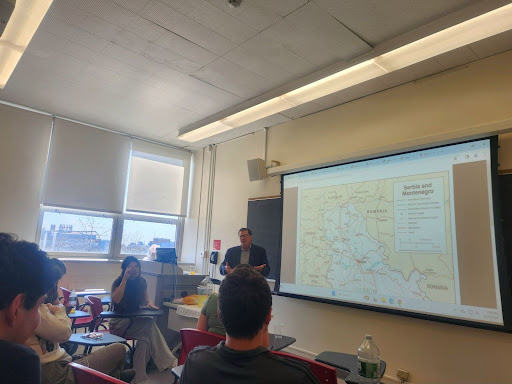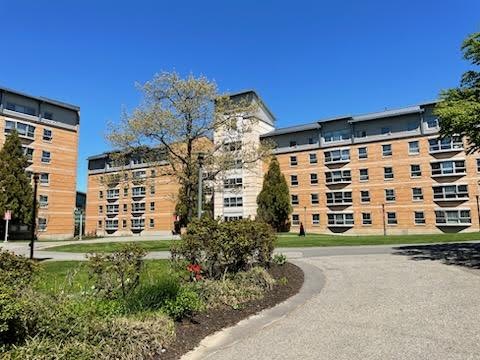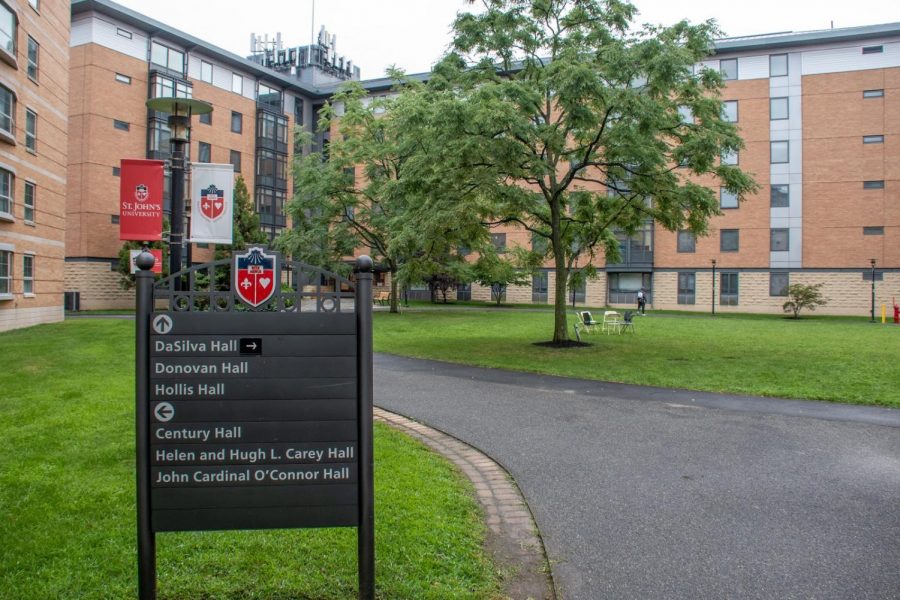In a world that is constantly shrinking, as people get more connected thanks to technological progress, America no longer has the option of isolation, and neither does St. John’s University.
Students may soon be required to do research projects with the use of foreign periodicals and may also be required to take up a foreign language to help internationalize the SJU curriculum.
At the internationalization of SJU’s curriculum workshop, presented by St. John’s Center for Global Studies, the Center for Teaching and Learning and the Committee on Latin American and Caribbean Studies on April 25, speaker Azzedine Layachi, from the Department of Government and Politics, defined internationalization in the curriculum subject matter that enables educational institutions to connect students, faculty and administrators to the co-dependent world.
“Our campuses and our educational system have remained parochial, inward-looking and many steps behind the internationalization that has been characterizing other areas of national life for decades now,” Layachi, said.
Other faculty members that attended the workshop voiced their concerns and offered ideas in an effort to start a resolution.
Konrad Tuchscherer, assistant professor of the Department of History at St. John’s College suggested that St. John’s stress the value of language in its set of courses. With the business world reaching out to many different countries, learning how to communicate in different languages is imperative in order to correspond and be successful in business. It would also create more marketable skills for SJU graduates, he said.
Requiring students to use international sources on their projects was another idea that was brought up in a written statement by Charles Wankel, associate professor of Management at the Tobin College of Business, who was unable to attend the seminar.
“I found that the Kito Center in the David Eccles School of Business at the University of Utah houses a collection of foreign periodicals and other foreign materials and a lounge open to all students interested in international affairs and global marketplaces,” Wankel said.”I think that creating such a place at the Tobin College of Business would be great. Also, it is something that I believe could be rapidly funded by an international business in this city.”
Other faculty members expressed assigning students to read newspapers like The New York Times to increase students’ knowledge of worldwide affairs.
“It gives them [students] both a national and international perspective beyond what we teach in the class,” Franklin Camerano, director of Health Services at the College of Professional Studies said.
“Students need to start going into the outside world. So I think they should begin this process of moving from a sheltered academic environment, into the outside world. And one of the ways of doing that is finding out what is out there, what is happening in the outside world, not only in the neighborhood, but all over.”
Ruth De Paula from the Center for Global Studies assured that there were enough scholarships so students would be able to pay for a semester to study abroad, which would also broaden international knowledge.
“Students just have to come to us [the Center for Global Studies and the Study Abroad Program] and find them,” she said. You have to do a huge amount of paper work [but] we are there to help.”
Another means of helping to finance a worldlier faculty and students would be to incorporate the Fulbright Program into the University.
Fulbright grants are given to U.S. citizens for a variety of educational activities, advanced research, graduate study and teaching in elementary and secondary schools and university lecturing.
The hope is to one day make St. John’s better known, and to establish relations with representatives in as many cultures and countries in the world as possible. In essence this should help expose students and educators to a rich awareness of the world.















